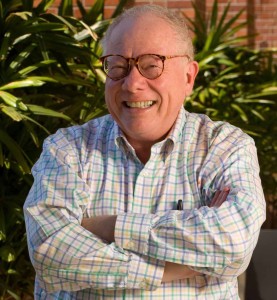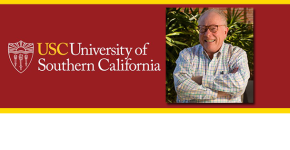
Education is always an important topic.
Martin Krieger, professor of planning at the University of Southern California, examines the work of academic professors.
Martin Krieger’s current work is on defense and military policy, and on uncertainty and ambiguity. He has done social-science informed aural and photographic documentation of Los Angeles, including storefront houses of worship and industrial Los Angeles. Professor Krieger has won three consecutive Mellon Mentoring Awards, for mentoring undergraduates, faculty, and graduate students. Professor Krieger has worked in the fields of planning and design theory, ethics and entrepreneurship, mathematical models of urban spatial processes, and has explored the role of the humanities in planning. His nine published books describe how planning, design, and science are actually done. Professor Krieger has been a fellow at the Center for Advanced Study in the Behavioral Sciences and at the National Humanities Center, and is a Fellow of the American Physical Society. He has received grants from a variety of foundations, and has served as the Zell/Lurie Visiting Professor of Entrepreneurship at University of Michigan’s Business School. He joined the USC faculty in 1984. Professor Krieger often helps doctoral students, as well as undergraduates and masters students, focus and formulate their research projects.
We Professors
We are privileged to be professors. We set our agendas, and all we need do is to achieve our goals.
Most colleagues and students come from middle and upper class backgrounds. But others are from the end-of-the-Subway-line Brooklyn and were working class, brought up in an old-fashioned household.
If our job is teaching, we have to figure out what we want our students to know years hence.
If our job includes curiosity-driven research and thinking, perhaps seeking analogies between different fields. We should be asking, What is really going on in this work of scholarship. We try to discern the secret handshakes that make legitimate the mathematics or the literary or historical analysis. We think for a living.
If we are parents, we become even more focused, and more productive, too. W. Winnicott talks about the infant’s developing a capacity to be alone, our usual mode. Nonetheless, we seek resonances and sympathies, and once in a while there is some colleague far away who gets it. We find each other.
In the seminar room, we are always trying to figure out what is really going on.
Every decade or two, we might consider changing directions. So, as a professor of city planning I have emerged from my office and desk and book-writing, to make photographs of Los Angeles and New York City, and recordings of their ambient sounds, to see and hear what is going on.
We have the freedom to explore our bucket lists, especially in the decade before we formally retire.
